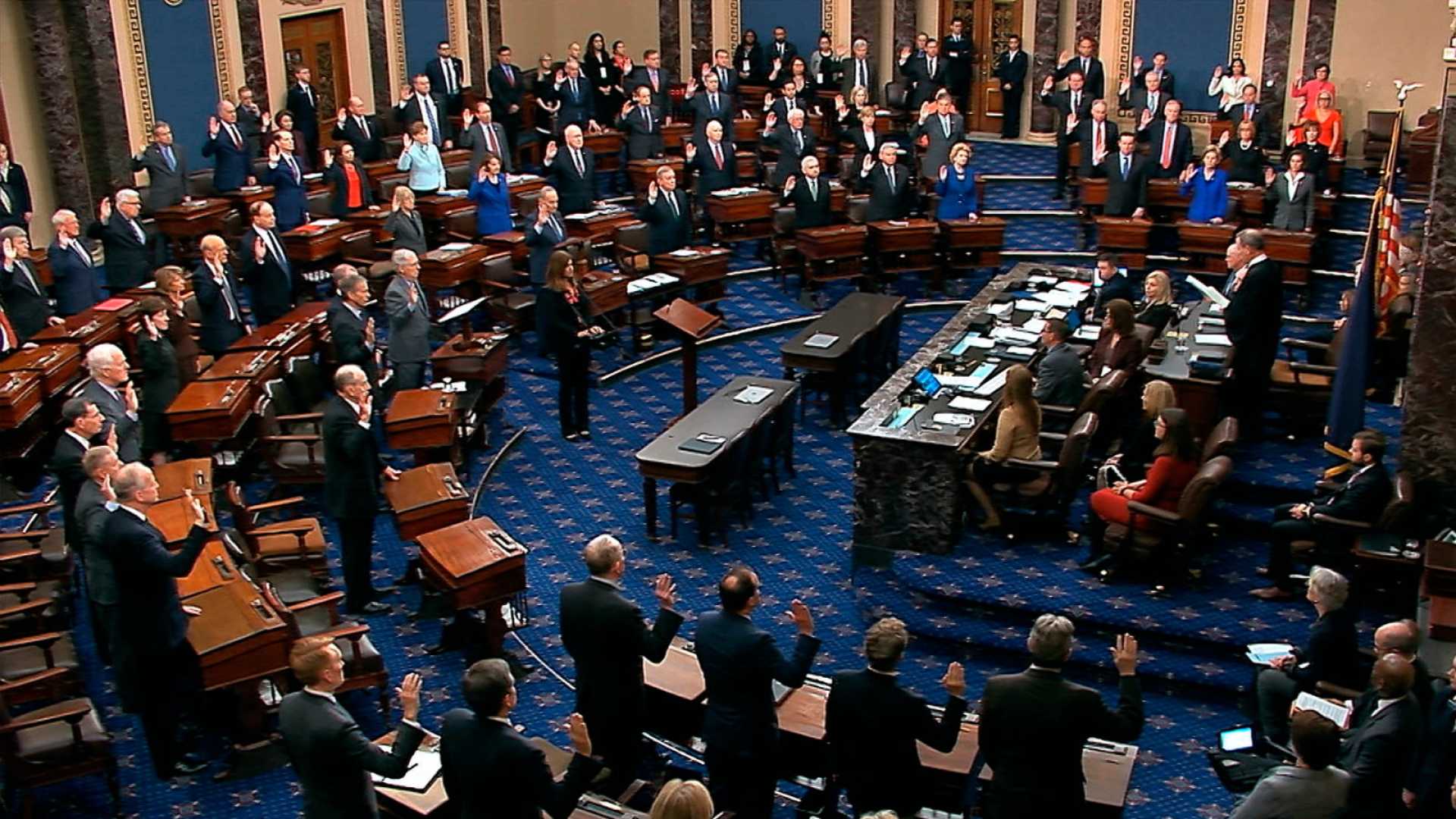Politics
Bipartisan Senate Proposes Sanctions Amid Tensions with Russia

WASHINGTON, April 1 (Reuters) – A bipartisan coalition of the U.S. Senate, consisting of 25 Republicans and 25 Democrats, introduced a new sanctions bill on Tuesday aimed at Russia should it refuse to participate in peace negotiations with Ukraine. The legislation, spearheaded by Republican Senator Lindsey Graham and Democratic Senator Richard Blumenthal, would impose both primary and secondary sanctions targeting Russia and any entities that support its aggression in Ukraine.
The senators stated that the initiative is particularly critical in light of Moscow’s ongoing military actions, which have persisted since the outset of the conflict. “The sanctions against Russia include tariffs on countries purchasing Russian oil, gas, uranium, and other products. They are hard-hitting for a reason,” Graham and Blumenthal said in a joint statement.
Senators agreed that a united front is essential, emphasizing that the prevailing sentiment in the Senate is that Russia is the aggressor in the ongoing crisis. They expressed urgency in responding to what they labeled as “Putin’s aggression” and reiterated the need for a peaceful resolution to the war. While support for Ukraine remains strong among many in Congress, the political landscape has shifted somewhat since the Republican Party regained control of the House of Representatives.
Despite President Donald Trump‘s more conciliatory stance towards Russia, frustrations about the lack of progress on peace negotiations have grown among legislators. Trump has made suggestions that Ukraine’s leaders may be hindering the negotiation process, leading to bipartisan calls for more decisive measures.
“The dominating view in the United States Senate is that this horrific war must end now and be deterred in the future,” Graham and Blumenthal reiterated. They anticipate that the sanctions bill will garner significant support if it is put to a vote, although a timeline for such a vote has yet to be established.
The legislation is mirrored by companion proposals in the House of Representatives, indicating a strong likelihood of bipartisan backing across both chambers of Congress. However, it remains unclear if House Republicans will prioritize a vote.
Meanwhile, in a separate announcement from Kyiv, Ukraine’s chief of staff, Andriy Yermak, conveyed that relations with the United States are “back on track” following a recent period of tension. Yermak indicated that two rounds of talks on a potential ceasefire, conducted in Saudi Arabia, demonstrate Kyiv’s willingness to cooperate with U.S. officials in peace negotiations.
“I think we have great conversations with the Americans. I think we are back on track,” Yermak stated, contrasting Ukraine’s openness with what he termed the conditional approach of Russian negotiators.
Despite the fragile state of talks, Yermak noted that the United States has been active in attempting to mediate between the conflicting parties. As discussions evolve, all parties appear to be searching for a sustainable resolution to the multi-year conflict.












